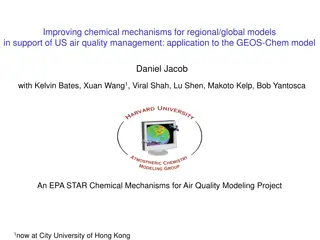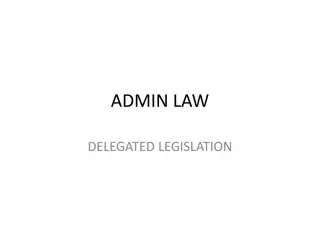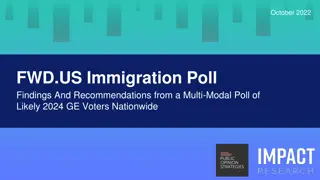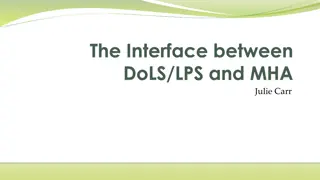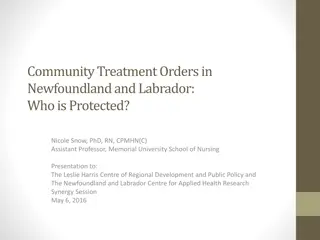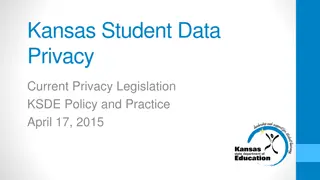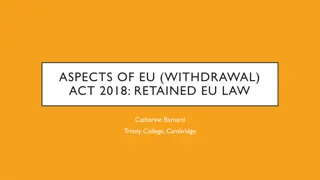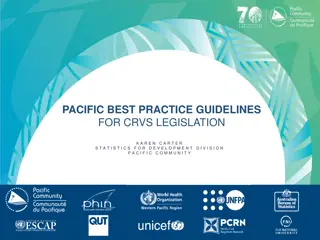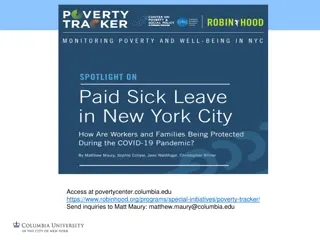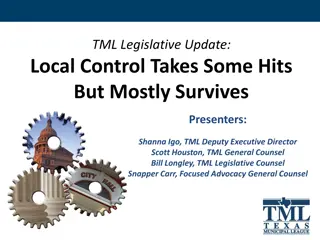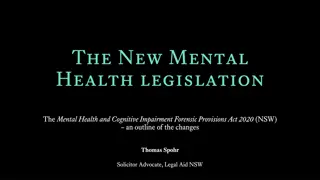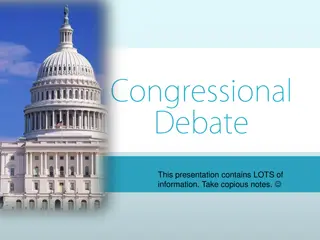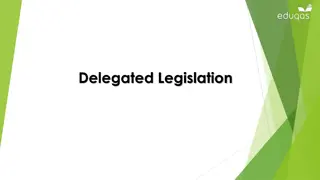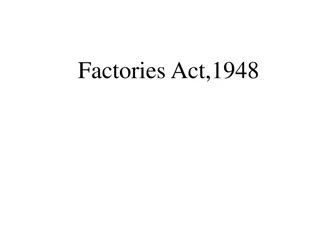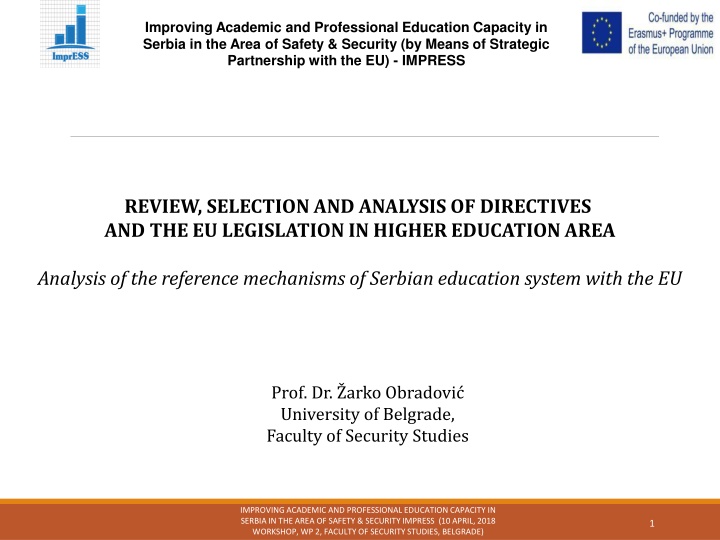
Enhancing Education Capacity in Serbia for Safety & Security through EU Partnership
"Explore the IMPRESS project's analysis of Serbian education with the EU, focusing on directives, legislation, and partnerships for improving safety and security education in Serbia. Discover the interactions between Serbian education systems and EU mechanisms for academic and professional growth."
Download Presentation

Please find below an Image/Link to download the presentation.
The content on the website is provided AS IS for your information and personal use only. It may not be sold, licensed, or shared on other websites without obtaining consent from the author. If you encounter any issues during the download, it is possible that the publisher has removed the file from their server.
You are allowed to download the files provided on this website for personal or commercial use, subject to the condition that they are used lawfully. All files are the property of their respective owners.
The content on the website is provided AS IS for your information and personal use only. It may not be sold, licensed, or shared on other websites without obtaining consent from the author.
E N D
Presentation Transcript
Improving Academic and Professional Education Capacity in Serbia in the Area of Safety & Security (by Means of Strategic Partnership with the EU) - IMPRESS REVIEW, SELECTION AND ANALYSIS OF DIRECTIVES AND THE EU LEGISLATION IN HIGHER EDUCATION AREA Analysis of the reference mechanisms of Serbian education system with the EU Prof. Dr. arko Obradovi University of Belgrade, Faculty of Security Studies IMPROVING ACADEMIC AND PROFESSIONAL EDUCATION CAPACITY IN SERBIA IN THE AREA OF SAFETY & SECURITY IMPRESS (10 APRIL, 2018 WORKSHOP, WP 2, FACULTY OF SECURITY STUDIES, BELGRADE) 1
Improving Academic and Professional Education Capacity in Serbia in the Area of Safety & Security (by Means of Strategic Partnership with the EU) - IMPRESS Overall contents Bologna Process and EHEA Higher Education System in the Republic of Serbia Issues and Challenges for the HE System of the Republic of Serbia International Cooperation with other HE Systems possible joint programmes EU Legislation in Higher Education Area INVENTORY Mechanisms of Referencing of the Republic of Serbia with the EU / EHEA Republic of Serbia`s Status in Mechanisms IMPROVING ACADEMIC AND PROFESSIONAL EDUCATION CAPACITY IN SERBIA IN THE AREA OF SAFETY & SECURITY IMPRESS (10 APRIL, 2018 WORKSHOP, WP 2, FACULTY OF SECURITY STUDIES, BELGRADE) 2
Improving Academic and Professional Education Capacity in Serbia in the Area of Safety & Security (by Means of Strategic Partnership with the EU) - IMPRESS Why does it matter in context of ImprESS? DIRECTIVES AND THE EU LEGISLATION IN HIGHER EDUCATION AREA It provides deeper understanding of curent legislative state of the art of the EU in Higher Education area It is a direct outcome and logical continuation of the WP 1 of ImprESS project Analysis of the reference mechanisms of Serbian education system with the EU PRECONDITION FOR WORKING PACKAGE 3 AND SELECTION OF RELEVANT PROGRAMMES AND COURSES IMPROVING ACADEMIC AND PROFESSIONAL EDUCATION CAPACITY IN SERBIA IN THE AREA OF SAFETY & SECURITY IMPRESS (586410-EPP-1- 2017-1-RS-EPPKA2-CBHE-JP (2017-3214/001-001)) 3
Improving Academic and Professional Education Capacity in Serbia in the Area of Safety & Security (by Means of Strategic Partnership with the EU) - IMPRESS Bologna process at a glance In Bologna in 1999 the Ministers of Education of 29 countries agreed on a common vision of a European Higher Education Area, with intention to reform the higher education and harmonization, and to create the EHEA. They found that this vision was politically relevant for their own countries and translated it into the operational goals listed in the Bologna Declaration. In the past 19 years the Bologna Process, through voluntary convergence and an intergovernmental approach, has led to the construction of the main periods: A common framework until 2010, which includes the overarching Framework for Qualifications of the EHEA, a common credit system (ECTS), common principles for the development of student-centered learning, the European Standards and Guidelines for Quality Assurance, a common Register of QA Agencies, a common approach to recognition, and a common body of methodologies and sustainable achievements produced by European HEIs the so-called Bologna Process. The second part (after 2010), was dedicated to the EHEA establishment. The pan-European character of the process should be enhanced, its added value for national policies should be made more visible, and steps should be taken to involve the entire academic community teachers, students and administrative staff - in elaborating the concrete paths toward its realization. IMPROVING ACADEMIC AND PROFESSIONAL EDUCATION CAPACITY IN SERBIA IN THE AREA OF SAFETY & SECURITY IMPRESS (586410-EPP-1- 2017-1-RS-EPPKA2-CBHE-JP (2017-3214/001-001)) 4
Improving Academic and Professional Education Capacity in Serbia in the Area of Safety & Security (by Means of Strategic Partnership with the EU) - IMPRESS Bologna process goals 1. System of Easily Understandable and Comparable Academic Knowledge, added by Diploma Supplement; 2. System based on two Cycles of Education: Undergraduate and Graduate 3. Establishing the ECTS System 4. Improving the Mobility of Students and Teachers 5. Improving Cooperation within the European Level 6. Improving the European Dimension in Higher Education Area IMPROVING ACADEMIC AND PROFESSIONAL EDUCATION CAPACITY IN SERBIA IN THE AREA OF SAFETY & SECURITY IMPRESS (586410-EPP-1- 2017-1-RS-EPPKA2-CBHE-JP (2017-3214/001-001)) 5
Improving Academic and Professional Education Capacity in Serbia in the Area of Safety & Security (by Means of Strategic Partnership with the EU) - IMPRESS Republic of Serbia & Bologna process 1. Republic of Serbia entered into Bologna process in 2003 2. Law on Higher Education of the Republic of Serbia - 2005 3. Law on Higher Education of the Republic of Serbia 2017 4. Republic of Serbia actively participated within the conferences, in Berlin (2003), Bergen (2005), London (2007), Leuven (2009), Bucharest (2012) and Yerevan (2015). 5. The last three conferences have introduced the set of 10 indicators and measures for the results per single country. IMPROVING ACADEMIC AND PROFESSIONAL EDUCATION CAPACITY IN SERBIA IN THE AREA OF SAFETY & SECURITY IMPRESS (586410-EPP-1- 2017-1-RS-EPPKA2-CBHE-JP (2017-3214/001-001)) 6
Improving Academic and Professional Education Capacity in Serbia in the Area of Safety & Security (by Means of Strategic Partnership with the EU) - IMPRESS Serbian higher educational system Current State of Art 1. Universities (8 public + 10 private, 18 in total) 2. Faculties / Academies of Art (122 in total) 3. Higher Education Colleges of Academic Studies (7 in total) 4. Higher Education Colleges of Professional Career Studies (47 public + 17 private) Total approximated number of students in Serbian Higher Education System: 240.000 IMPROVING ACADEMIC AND PROFESSIONAL EDUCATION CAPACITY IN SERBIA IN THE AREA OF SAFETY & SECURITY IMPRESS (586410-EPP-1- 2017-1-RS-EPPKA2-CBHE-JP (2017-3214/001-001)) 7
Improving Academic and Professional Education Capacity in Serbia in the Area of Safety & Security (by Means of Strategic Partnership with the EU) - IMPRESS Results Republic of Serbia Leuven 2009 Leuven Results: IMPROVING ACADEMIC AND PROFESSIONAL EDUCATION CAPACITY IN SERBIA IN THE AREA OF SAFETY & SECURITY IMPRESS (586410-EPP-1- 2017-1-RS-EPPKA2-CBHE-JP (2017-3214/001-001)) 8
2 CYCLES ACCESS NQF External STUDEN TS INTERNAT DIP.S UPP. LISBON ECTS RIPL IMPROVING ACADEMIC AND PROFESSIONAL EDUCATION CAPACITY IN SERBIA IN THE AREA OF SAFETY & SECURITY IMPRESS (586410-EPP-1- 2017-1-RS-EPPKA2-CBHE-JP (2017-3214/001-001)) 9
Improving Academic and Professional Education Capacity in Serbia in the Area of Safety & Security (by Means of Strategic Partnership with the EU) - IMPRESS Overall countries` assessments First & Second Cycle Access to next cycle NQF Implementation 5 External EQ 4 Students` participation in EQ 3 Intrntnl participation in EQ 2 Diploma Supplement 1 ETCS Implementation Prior learning 0% 20% 40% 60% 80% 100% IMPROVING ACADEMIC AND PROFESSIONAL EDUCATION CAPACITY IN SERBIA IN THE AREA OF SAFETY & SECURITY IMPRESS (586410-EPP-1- 2017-1-RS-EPPKA2-CBHE-JP (2017-3214/001-001)) 10
Improving Academic and Professional Education Capacity in Serbia in the Area of Safety & Security (by Means of Strategic Partnership with the EU) - IMPRESS Serbia`s results Bucharest 2012 First & Second Cycle Access to next cycle NQF Implementation External EQ Students` participation in EQ Intrntnl participation in EQ Diploma Supplement ETCS Implementation Prior learning 0 1 2 3 4 5 6 IMPROVING ACADEMIC AND PROFESSIONAL EDUCATION CAPACITY IN SERBIA IN THE AREA OF SAFETY & SECURITY IMPRESS (586410-EPP-1- 2017-1-RS-EPPKA2-CBHE-JP (2017-3214/001-001)) 11
Improving Academic and Professional Education Capacity in Serbia in the Area of Safety & Security (by Means of Strategic Partnership with the EU) - IMPRESS Serbian NQF National Serbian NQF law is adopted on Thursday, 5th of April, by Serbian Parliament. National Framework of Qualifications in Serbia (NQFS) is an integral part of the European integration process and the Chapter 26 Education and Culture, with the planned referencing to European Qualifications Framework and mobility of workforce. The Law on NQFS shall envisage the establishment of a special Qualifications Agency, with the aim of providing quality on all levels of development and implementation of the National Qualifications Framework in the Republic of Serbia (NQFS). The purpose of the referencing is to present transparently to other countries the way Serbia has connected its levels of qualifications with EQF and thus provided the fulfilment of appropriate procedures and criteria (ten) for the referencing. In order to be able to approach the process of referencing NQFS with EQF, it is necessary for Serbia to prepare a Report on Referencing, with the help of international experts, whose integral part shall be a Supplementary Report on the Self-assessment of NQFS in the field of higher education compared to Qualifications Framework in the European Higher Education Area (EHEA QF). IMPROVING ACADEMIC AND PROFESSIONAL EDUCATION CAPACITY IN SERBIA IN THE AREA OF SAFETY & SECURITY IMPRESS (586410-EPP-1- 2017-1-RS-EPPKA2-CBHE-JP (2017-3214/001-001)) 12
Improving Academic and Professional Education Capacity in Serbia in the Area of Safety & Security (by Means of Strategic Partnership with the EU) - IMPRESS Possibilities for Joint Programmes 1. International joint programmes in Serbia, are organized in the fields of social Sciences and humanities (social work, business law, European integrations, Quantitative finance), natural sciences and mathematics, interdisciplinary Studies (cultural policy and management). There are 22 joint study programmes, with 15 partner institutions (University of Innsbruck, University of Salzburg, University of Rome, University of Trieste, University of Zagreb, University of Lion, University of Gottingen...). THERE ARE NO JOINT SECURITY & SAFETY STUDIES While there is none Doctoral joint studies at all, the distribution between joint MA and BA is as following: BA 5%, MA 95%. 2. 3. 4. IMPROVING ACADEMIC AND PROFESSIONAL EDUCATION CAPACITY IN SERBIA IN THE AREA OF SAFETY & SECURITY IMPRESS (586410-EPP-1- 2017-1-RS-EPPKA2-CBHE-JP (2017-3214/001-001)) 13
Improving Academic and Professional Education Capacity in Serbia in the Area of Safety & Security (by Means of Strategic Partnership with the EU) - IMPRESS Implementing Actors Important higher education bodies in Serbia: Ministry of Education, Science and Technological Development of the Republic of Serbia The National Council on Higher Education (abbreviation NSVO). TheCommission for Accreditation and Quality Assurance of the Republic of Serbia (abbreviation KAPK) is the first level legal body which makes decisions on accreditation status of higher education institutions at the first decision-making level. KONUS - Conference of Universities of Serbia. SKONUS - Student Conference of Universities of Serbia KASSS - Conference of Academies of Vocational Studies (Konferencija akademija strukovnih studija Srbije) IMPROVING ACADEMIC AND PROFESSIONAL EDUCATION CAPACITY IN SERBIA IN THE AREA OF SAFETY & SECURITY IMPRESS (586410-EPP-1- 2017-1-RS-EPPKA2-CBHE-JP (2017-3214/001-001)) 14
Improving Academic and Professional Education Capacity in Serbia in the Area of Safety & Security (by Means of Strategic Partnership with the EU) - IMPRESS Inventory of the EU Legislation in Higher Education Area Inventory of the EU Legislation in Higher Education Area presents the unique index of chosen EU legislation (directives, laws, strategies, conventions, decisions, instructions, regulations and other acts). In its initial phase, Inventory shall be filled-in with relevant data, while afterwards it will present a tool of open source information about the current legislation related to the higher education within the EU. Inventory will remain as a durable outcome of the Working Package 2, even after the project as a whole is finished. It is under further consideration whether the Inventory shall be transmitted into an online database which could be easily accessed. IMPROVING ACADEMIC AND PROFESSIONAL EDUCATION CAPACITY IN SERBIA IN THE AREA OF SAFETY & SECURITY IMPRESS (586410-EPP-1- 2017-1-RS-EPPKA2-CBHE-JP (2017-3214/001-001)) 15
Improving Academic and Professional Education Capacity in Serbia in the Area of Safety & Security (by Means of Strategic Partnership with the EU) - IMPRESS Inventory items Main contribution to the EHEA No. Reference to nat. legislation Inv.Ref.No. Status Type Legal Regime Full Document Name Area / Keywords Institution of Adoption Language/s Off. EU Journal No. Online path Implementation Level Last modified Adopted on IMPROVING ACADEMIC AND PROFESSIONAL EDUCATION CAPACITY IN SERBIA IN THE AREA OF SAFETY & SECURITY IMPRESS (586410-EPP-1- 2017-1-RS-EPPKA2-CBHE-JP (2017-3214/001-001)) 16
Improving Academic and Professional Education Capacity in Serbia in the Area of Safety & Security (by Means of Strategic Partnership with the EU) - IMPRESS Mechanisms of referencing Serbian Higher Education System with the EHEA EU EEA Russia/Ukraine EU Candidate countries TOTAL: 48 MECHANISMS National Institutions Serbian legislation Specialized regulatory bodies ECVET EQAR ENQA EQAVET Europass Youthpass Ministry of Education, Science and Technological Development of Serbia EHEA CAQA IMPROVING ACADEMIC AND PROFESSIONAL EDUCATION CAPACITY IN SERBIA IN THE AREA OF SAFETY & SECURITY IMPRESS (586410-EPP-1- 2017-1-RS-EPPKA2-CBHE-JP (2017-3214/001-001)) 17
Improving Academic and Professional Education Capacity in Serbia in the Area of Safety & Security (by Means of Strategic Partnership with the EU) - IMPRESS Mechanisms of referencing Serbian Higher Education System with the EHEA Youthpass Youthpass is a tool to document and recognise learning outcomes from youth work activities. It is available for projects funded by Erasmus+: Youth in Action (2014-2020) and Youth in Action (2007-2013) programmes. It is a part of the European Commission s strategy to foster the recognition of non-formal learning, putting policy into practice and practice into policy: Youthpass certificates are available for: Youth Exchanges, European Voluntary Service, Mobility of Youth Workers ,Transnational Cooperation Activities (TCA) Structured Dialogue meetings Europass Europass is a European Union (Directorate General for Education and Culture) initiative to increase transparency of qualification and mobility of citizens in Europe. It aims to make a person's skills and qualifications clearly understood throughout Europe (including the European Union, European Economic Area and EU candidate countries). The five Europass documents are: Curriculum Vitae, Language Passport, Europass Mobility, Certificate Supplement, Diploma Supplement, sharing a common brand name and logo. The ENQA The European Association for Quality Assurance in Higher Education (ENQA) is an umbrella organisation which represents quality assurance organisations from the European Higher Education Area (EHEA) member states. ENQA promotes European co-operation in the field of quality assurance in higher education and disseminates information and expertise among its members and towards stakeholders in order to develop and share good practice and to foster the European dimension of quality assurance. The EQAR In most European countries, higher education institutions or study programmes are subject to regular external review by a quality assurance agency. The European Quality Assurance Register for Higher Education (EQAR) is a register of such agencies, listing those that substantially comply with a common set of principles for quality assurance in Europe. The EQAVET EQAVET is a community of practice that promotes European collaboration in developing and improving quality assurance in VET. ECVET The European Credit System for Vocational Education and Training, often referred to as ECVET, is a technical framework for the transfer, recognition and (where appropriate) accumulation of individuals' learning outcomes with a view to achieving a qualification. Guided by a European-level Recommendation, ECVET relies on the description of qualifications in units of learning transfer, recognition and accumulation IMPROVING ACADEMIC AND PROFESSIONAL EDUCATION CAPACITY IN SERBIA IN THE AREA OF SAFETY & SECURITY IMPRESS (586410-EPP-1- 2017-1-RS-EPPKA2-CBHE-JP (2017-3214/001-001)) 18 and series of complementary documents such
Improving Academic and Professional Education Capacity in Serbia in the Area of Safety & Security (by Means of Strategic Partnership with the EU) - IMPRESS Mechanisms and Serbia MECHANISM REPUBLIC OF SERBIA STATUS Youthpass Serbia is not formally member of the Youthpass system, even though, all the NGOs participating within Erasmus+ Youth in Action programmes, could freely issue the Youthpass. Europass ENQA No membership existence. De facto all EHEA countries are implementing it. 2013 (Commission for Accreditation and Quality Assurance) Selfevaluation report 2012-2015 available (SRB only): https://goo.gl/kGpnuw Formally from 2014; Serbian higher education institutions can't choose an EQAR-registered agency for their mandatory external quality assurance., neither the European Approach is available to higher education institutions in Serbia. Serbia is not a member. Full EU membership required. EU Member States and European Economic Area countries, and European Commission. Serbia does not have a local point. No further information applicable. EQAR EQUAVET ECVET IMPROVING ACADEMIC AND PROFESSIONAL EDUCATION CAPACITY IN SERBIA IN THE AREA OF SAFETY & SECURITY IMPRESS (586410-EPP-1- 2017-1-RS-EPPKA2-CBHE-JP (2017-3214/001-001)) 19
Improving Academic and Professional Education Capacity in Serbia in the Area of Safety & Security (by Means of Strategic Partnership with the EU) - IMPRESS Mechanisms implementators Important higher education bodies in Serbia: Ministry of Education, Science and Technological Development of the Republic of Serbia The National Council on Higher Education (abbreviation NSVO). TheCommission for Accreditation and Quality Assurance of the Republic of Serbia (abbreviation KAPK) is the first level legal body which makes decisions on accreditation status of higher education institutions at the first decision-making level. KONUS - Conference of Universities of Serbia. SKONUS - Student Conference of Universities of Serbia KASSS - Conference of Academies of Vocational Studies (Konferencija akademija strukovnih studija Srbije) IMPROVING ACADEMIC AND PROFESSIONAL EDUCATION CAPACITY IN SERBIA IN THE AREA OF SAFETY & SECURITY IMPRESS (586410-EPP-1- 2017-1-RS-EPPKA2-CBHE-JP (2017-3214/001-001)) 20
Improving Academic and Professional Education Capacity in Serbia in the Area of Safety & Security (by Means of Strategic Partnership with the EU) - IMPRESS Challenges of referencing with the EHEA and for harmonization with the EU legislation 1. A pan-European approach vs. National diversity 2. Process vs. Outcome 3. Top-down vs. Bottom-up approach 4. Common standards vs. Flexibility 5. Global vs. Regional Additional: 6. The European Union Membership IMPROVING ACADEMIC AND PROFESSIONAL EDUCATION CAPACITY IN SERBIA IN THE AREA OF SAFETY & SECURITY IMPRESS (586410-EPP-1- 2017-1-RS-EPPKA2-CBHE-JP (2017-3214/001-001)) 21
Improving Academic and Professional Education Capacity in Serbia in the Area of Safety & Security (by Means of Strategic Partnership with the EU) - IMPRESS THANK YOU FOR YOUR ATTENTION IMPROVING ACADEMIC AND PROFESSIONAL EDUCATION CAPACITY IN SERBIA IN THE AREA OF SAFETY & SECURITY IMPRESS (586410-EPP-1- 2017-1-RS-EPPKA2-CBHE-JP (2017-3214/001-001)) 22


